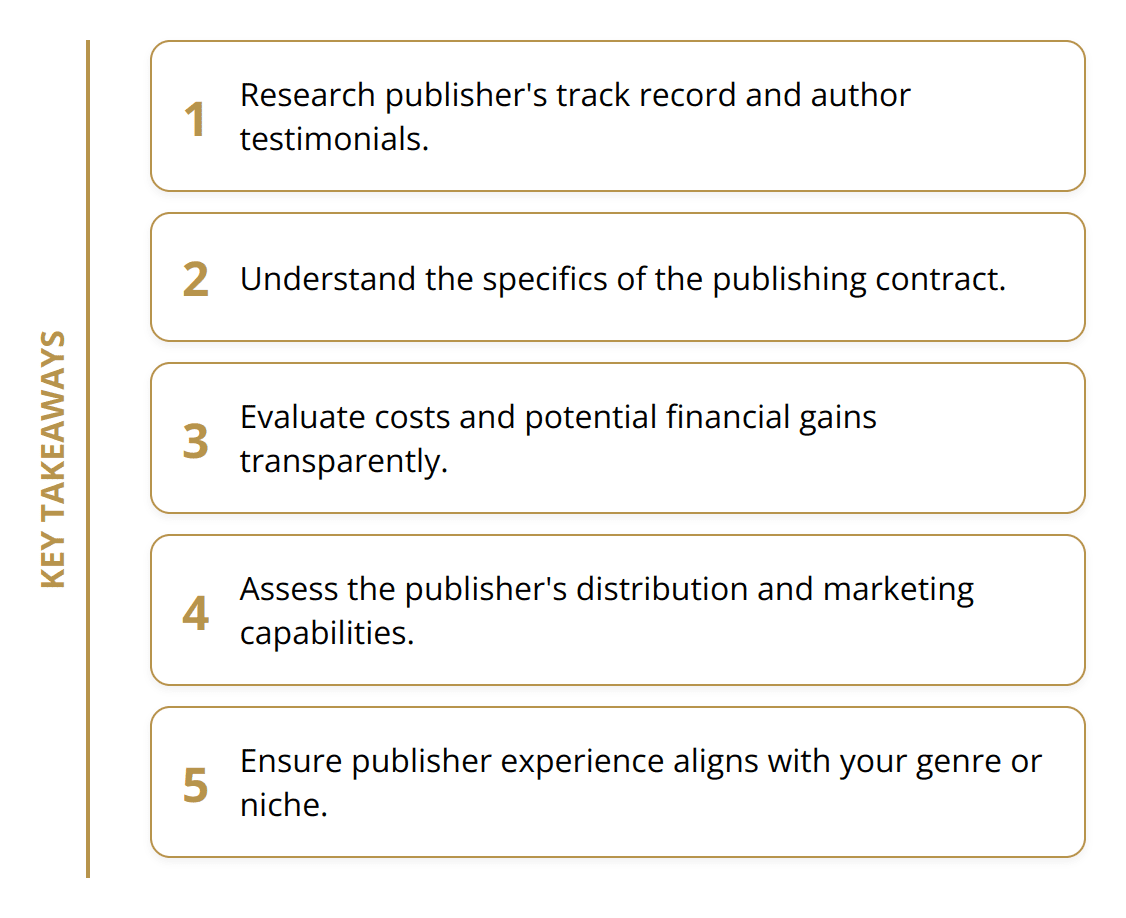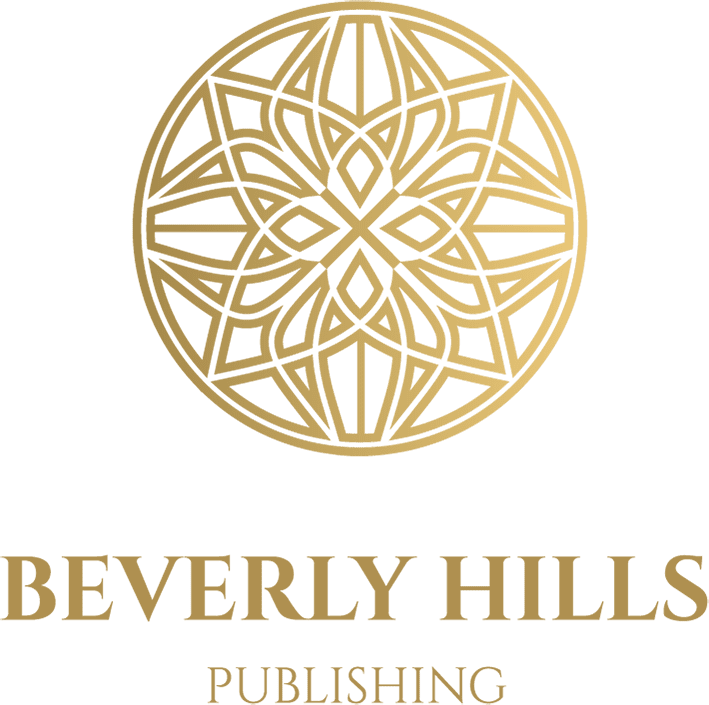Hybrid publishing represents an exciting middle ground in the literary world, combining the best of traditional and self-publishing. It offers a unique blend of control, support, and potential earning power for authors.
At Beverly Hills Publishing, we’ve witnessed firsthand the impact this model can have on a writer’s career. Let’s explore what makes hybrid publishing an attractive choice for today’s authors.
Understanding Hybrid Publishing
Hybrid publishing is a game-changer in the literary arena, strategically combining elements of traditional and self-publishing to offer a versatile option for authors. Unlike traditional publishing, where the publishing house assumes all costs and controls the process, or self-publishing, where the author is responsible for every aspect, hybrid publishing creates a partnership between the author and the publisher. This model is increasingly appealing for a variety of reasons, and understanding its core components is essential for any author considering their publishing options.

The Hybrid Publishing Definition
At its core, hybrid publishing bridges the gap between the autonomy of self-publishing and the support system of traditional publishing. Authors get to enjoy the best of both worlds: professional guidance and services without relinquishing control over their creative work. This model allows authors to access professional editing, design, and marketing services while retaining a significant degree of control over their work’s publication process and marketing strategy.
The Difference
The key difference in hybrid publishing lies in the shared investment and benefits. Unlike traditional publishing, where the publisher bears all costs (and risks), in the hybrid model, the author may contribute to the costs associated with publishing their book. This financial participation often results in higher royalties than traditional deals offer, giving authors a greater potential for earnings. Additionally, unlike self-publishing, which demands that the author become an overnight expert in publishing, hybrid publishing provides professional assistance, lifting the heavy burden of book production and promotion.
Key Components to Know
- Shared Costs and Profits: Authors invest in their book’s production, which leads to higher royalties.
- Professional Editing and Design: Authors benefit from the publisher’s professional services, enhancing book quality.
- Control and Flexibility: Authors maintain more control over the publication timeline, book pricing, and marketing strategies.
- Wider Distribution: Hybrid publishers can offer access to distribution channels more effectively than typical self-publishing routes, potentially increasing book sales.
- Credibility: Having a hybrid publisher’s name attached to a book can increase its marketability and credibility.
For authors navigating the complex world of publishing, understanding these components is vital. Hybrid publishing isn’t a one-size-fits-all solution; it requires careful consideration of one’s goals, resources, and commitment to the marketing process. However, for many, it represents the perfect balance, providing the benefits of professional publishing support with the autonomy cherished by independent authors.

To dive into the nitty-gritty of drafting a hybrid publishing contract that protects your interests, refer to publishing contracts explained.
In conclusion, hybrid publishing is an attractive choice for authors who are willing to invest in their book’s success while desiring to retain creative control and a higher share of profits. As this model continues to evolve, it’s becoming a pivotal part of the publishing landscape, reshaping how authors bring their visions to the readership.
Why Go Hybrid?
Exploring the hybrid publishing model reveals distinct advantages that cater specifically to authors who seek the best of both publishing worlds. This approach significantly shifts the traditional author-publisher dynamic, offering a flexible yet professional pathway to publication. Here’s why authors are turning to hybrid publishing:
Taking the Reins on Creativity
Authors cherish their creative freedom. Hybrid publishing respects this by allowing authors to retain substantial control over the creative aspects of their book, including writing, cover design, and often, the marketing approach. This creative control ensures the book remains true to the author’s original vision, which is a stark contrast to traditional publishing, where decisions are often made by the publisher with commercial considerations in mind.
Expert Support When It Counts
Navigating the publishing process alone is daunting. Hybrid publishing eliminates this barrier by coupling the author’s drive with the publisher’s expertise. From editorial guidance to cover design and marketing strategies, authors receive professional support tailored to their book’s needs. This partnership not only enhances the quality of the final product but also streamlines the publishing process, making it more accessible and less overwhelming for authors.
Financial Gains and Transparency
Perhaps one of the most compelling reasons to consider hybrid publishing is the potential for higher earnings. Traditional publishing offers lower royalties because the publisher assumes all financial risks. In contrast, hybrid publishing’s model of shared investment results in higher royalty rates for the author. While authors do incur upfront costs, the transparency and future earnings can outweigh these initial investments. A greater share of the profits remains with the author, reflecting their contribution and stake in the book’s success.

For actionable advice on navigating the financial aspects of hybrid publishing, including setting realistic budgets and understanding royalty structures, visiting resources like financial planning for authors can provide invaluable guidance.
In practice, authors considering hybrid publishing must weigh these benefits against their personal goals, resources, and commitment level. Those willing to invest in their book’s potential, craving professional support without sacrificing creative control, are likely to find hybrid publishing an excellent fit. It’s a strategic choice that empowers authors to steer their publishing journey while benefiting from the expertise and resources of a publishing partner. This balanced approach is defining a new era for authors and publishers alike, reshaping industry norms to prioritize collaboration, quality, and shared success.
Choosing a Hybrid Publisher
When moving towards hybrid publishing, it’s essential to approach this decision with a clear understanding and strategic mindset. Selecting the right hybrid publisher can make all the difference in the success and satisfaction with your published work. Here are the key factors authors should consider:
Assessing Costs and Investment
Financial considerations are at the forefront of deciding on a hybrid publisher. Authors should be prepared to invest in their book’s success, understanding that this model often requires upfront payments for professional services. However, these costs can vary widely between publishers, so it’s vital to do thorough research and obtain detailed cost breakdowns before making a commitment. Look for transparency in pricing and a clear explanation of what each fee covers. Comparing multiple publishers can help ensure you’re getting the best value for your investment. Always consider the long-term benefits, like higher royalty rates, against initial expenses.
Understanding Contract Terms and Rights
Contracts in hybrid publishing can be complex, covering aspects from rights retention to profit-sharing formulas. Authors must carefully review and fully comprehend the terms before signing. Key points to scrutinize include rights retention (particularly digital and foreign rights), the duration of the agreement, and specifics about royalties and book pricing. A good contract should balance the interests of both the author and the publisher, ensuring fair compensation and creative freedom for the author. Legal advice might be advisable to navigate these agreements and protect your interests.
Evaluating Publisher Credibility and Success Stories
The credibility of a hybrid publisher can significantly impact your book’s market success. Research their track record, including the quality of books they’ve published, their distribution network, and marketing capabilities. Look for publishers who have consistently supported authors in achieving their publishing goals and have transparent and positive reviews or testimonials. Success stories from other authors can provide valuable insights into the publisher’s effectiveness and the level of support and commitment you can expect.
Before making a decision, consider these additional tips:
-
Research extensively: Spend time on due diligence to understand the publisher’s strengths and weaknesses.
-
Seek feedback: Connect with other authors who have published with the company for firsthand accounts.
-
Understand the market: Ensure the publisher has experience and success in your genre or niche.
-
Clarify communication channels: Regular updates and open lines of communication are key for a smooth publishing process.

Choosing the right hybrid publisher is a crucial step that requires thoughtful consideration and research. By focusing on cost transparency, contract fairness, and credible success stories, authors can make an informed decision that aligns with their publishing aspirations and career goals.
Final Thoughts
Hybrid publishing emerges as a powerful pathway for authors, blending creative freedom with professional support. This model provides a lucrative opportunity for authors to retain significant control over their work while benefiting from the expertise of a publishing team. The key advantages, such as shared costs and profits, access to professional services, control and flexibility, wider distribution, and enhanced credibility, position hybrid publishing as an attractive option for many writers today.

Aspiring authors should consider several factors before choosing this route. It’s essential to evaluate the costs and understand the investment required, as well as to comprehend the terms of the publishing contract thoroughly. Assessing a publisher’s credibility and success stories is also crucial to ensure they can provide the desired level of support and reach. By making an informed decision, authors can partner with the right publisher to maximize their book’s potential and achieve their publishing goals.
We at Beverly Hills Publishing are committed to revolutionizing author success. Our approach seamlessly combines publishing with strategic branding and marketing to establish authors as leading authorities in their fields. By selecting a partner like us, authors are equipped to dramatically elevate their visibility, build strong brand identities, and emerge as industry leaders with a significant media presence.
Choosing the right publishing model and partner is pivotal. It can transform an author’s journey, turning aspirations into achievements. Hybrid publishing, with its balanced approach to author empowerment and professional support, offers a promising avenue for those looking to make a significant impact with their work. We encourage authors to explore this innovative model, keeping in mind their goals, resources, and the unique value that a partnership with a hybrid publisher can bring to their career.
Whether you’re at the beginning of your publishing journey or looking for new strategies to enhance your career, consider the flexibility, visibility, and authority that hybrid publishing can offer. Let’s navigate this exciting landscape together, turning your unique vision into a reality that resonates with readers worldwide.















































































































































































































































